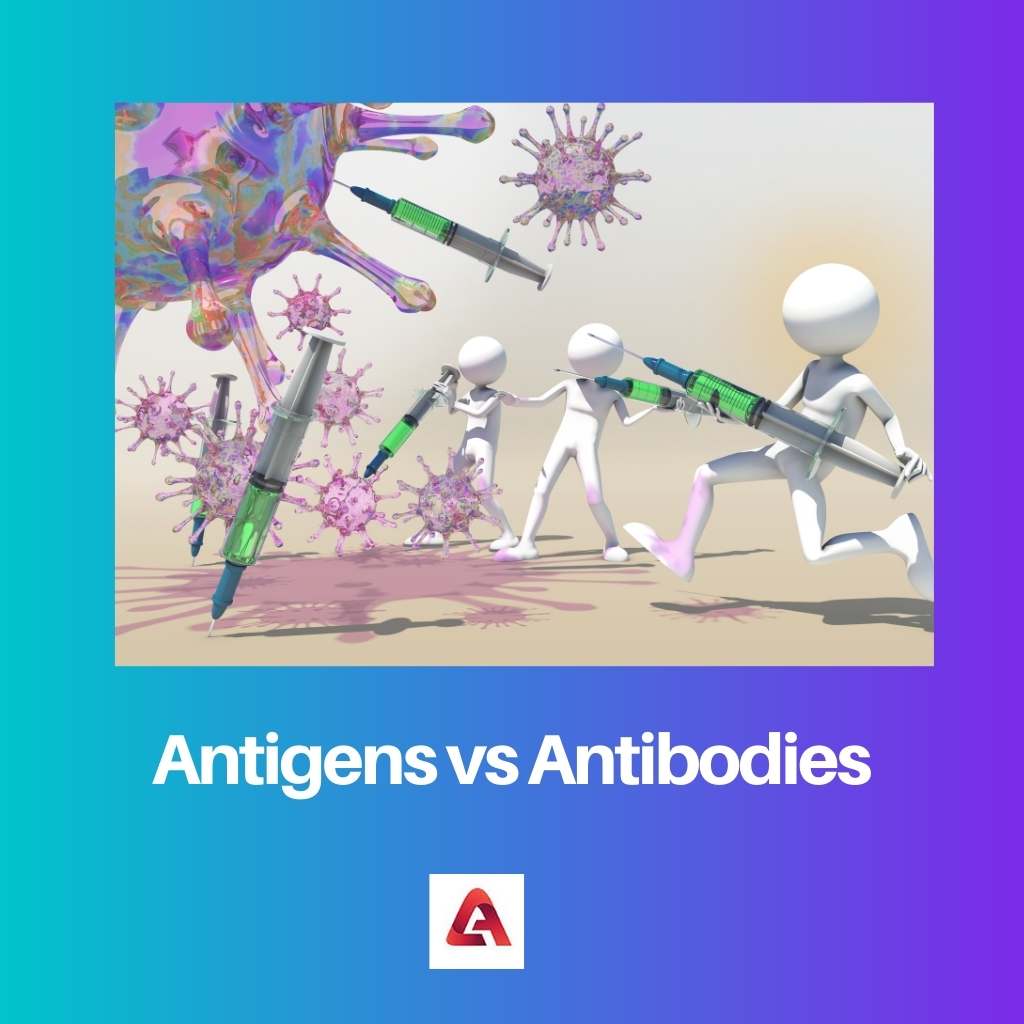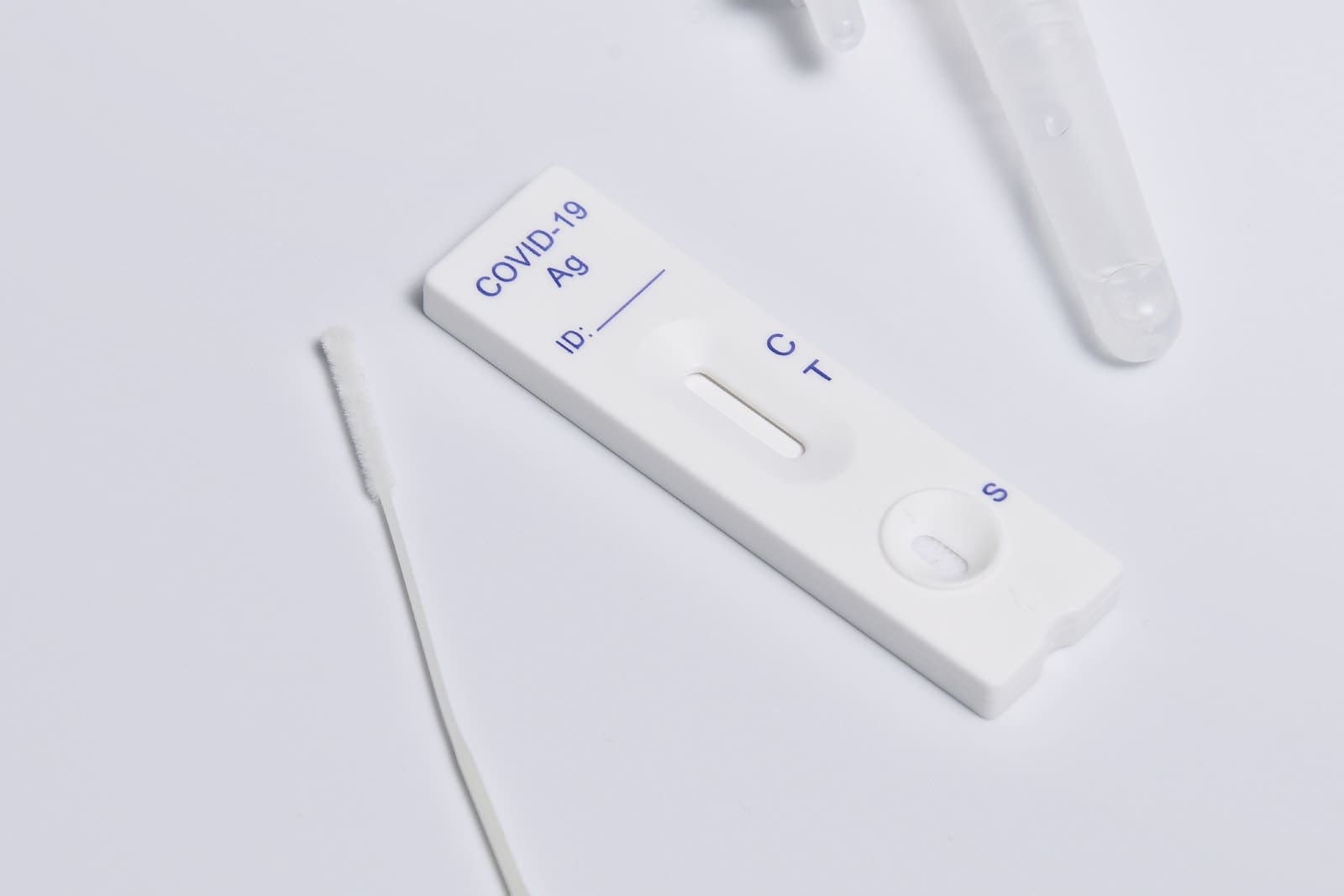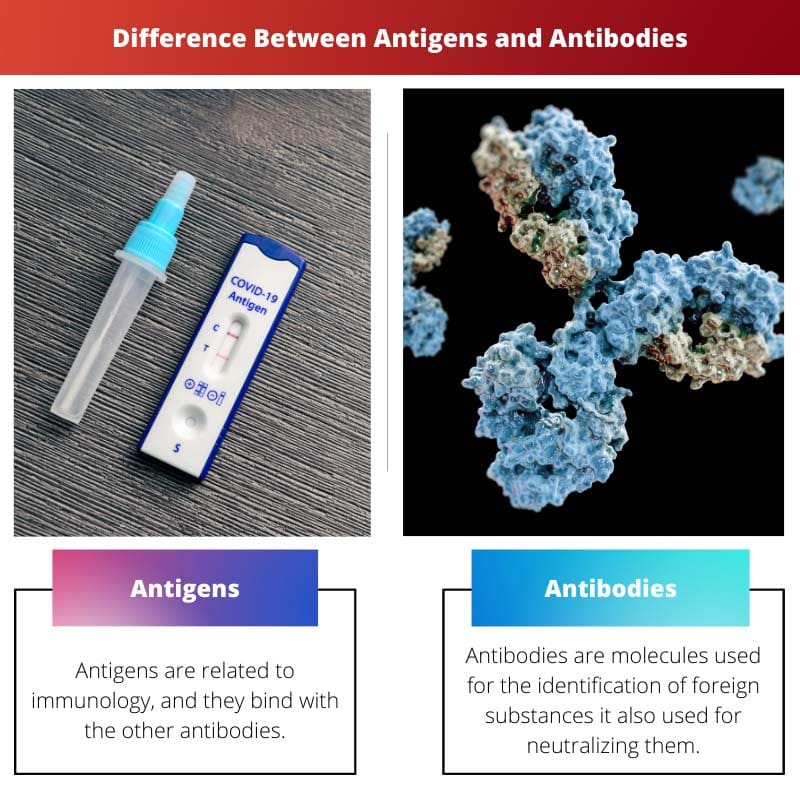A person needs to have a healthy body, which can only be possible if every organ and body part of the individual works properly.
The immunity of a person has a very important role in making sure the organs and other parts are healthy and work properly. In case an individual has a weak immune system, he won’t be able to survive a little disease or infection such as the common cold.
Studying the working and functions of immunity is called immunology, the two most important terms in it are Antigens and Antibodies. Both of them are related to immunity and hence are used interchangeably.
Following are differences along with information about them.
Key Takeaways
- Antigens are foreign substances that trigger an immune response in the body, while antibodies are proteins produced by the body to neutralize antigens.
- Antigens are found on the surface of viruses, bacteria, and other foreign substances, while antibodies are found in the blood and other bodily fluids.
- Antibodies are specific to particular antigens and can help the body fight off infections and diseases.
Antigens vs Antibodies
The difference between antigens and antibodies is that both of them are responsible for different functions in the body with the immune system. Antibodies are responsible for protecting the body from antigens or any other harmful substance that might enter the body, there has a protective effect on the body, whereas Antigens are a substance that makes sure the antibodies are activated by triggering them hence their effect on the body is to trigger the Antibodies in the body, this is how both of them are related. Both of them are also called by different names. Immunogens is another name for antigens, while Immunoglobulins is another name for antibodies. Other differences between them are mentioned below.

Antigens are related to immunology, and they bind with other antibodies. It is important for triggering the antibodies to protect the body from any harmful substance.
It is also called Immunogens and has a chemical composition of Lipids, Proteins, and Carbohydrates. Originally it was known as the originator of antibodies.
There are types of antigens categorized on the basis of their origin and response to the immune system, but all of them have an origin outside the body (except one type).
Antibodies are molecules used for the identification of foreign substances it also used for neutralizing them. It recognizes the unique pathogen that leads to triggering it. It is also called Immunoglobulins.
Its main function is to protect the body from foreign substances and boost the immune system. In the absence of it, there will be no substance in the body for protection. There are five types of antibodies.
Comparison Table
| Parameters of Comparison | Antigens | Antibodies |
|---|---|---|
| Synonyms | Immunogens | Immunoglobulins |
| Correlation | Triggers the immune response. | Produced in response to Antigens. |
| Chemical Composition | Lipids, proteins, carbohydrates. | Glycoproteins |
| Functions | Cause disease | Protects body. |
| Types | Exogenous, endogenous, autoantigens, etc. | IgM, IgG, IgE, IgD, and IgA |
What are Antigens?
The following are types of antigens:
On the basis of their Origin
- Exogenous Antigens: these are the antigens that are originally from the external environment, i.e., outside the body of the individual. Example of this kind of antigen is bacteria, fungi, virus, and parasites. Exogenous antigens can enter from ingestion, respiration, or through any wounds.
- Endogenous Antigens are metabolic products of the microorganisms living in the body. Therefore it is generated inside the body.
- Autoantigens: these are self-made proteins and, due to any reason (environmental alteration), are attacked by their immune system, and this attack is responsible for causing autoimmune diseases.
- Tumour Antigens: these are antigens that live on tumour cells.
- Native Antigens: this type of antigen is not processed by native antigens.
On the basis of the Immune Response
- Immunogen: they are able to generate the response of the immune system of a person on their own.
- Hapten: these are non-proteins, and they require a carrier molecule to gain the immune system’s response.

What are Antibodies?
It is a glycoprotein and is produced by plasma cells present in the blood. They are produced in response to specific antigens that might cause disease or serious infection in the body.
They are made up of two heavy and two light chains. And the complete molecule of antibodies is shaped like a Y. They have many shapes and sizes, but the most common is the Y-shaped proteins, which are known as IgG antibodies (immunoglobulin G).
They can be found easily in both of the following:
- Blood Circulation
- Lymphatic System
The main function of antibodies in an individual’s body is to protect him from antigens or any other foreign substance entering the body.
These substances are harmful and can make a person sick, therefore, it is important for the immune system to be strong to survive this, and antibodies provide that protection to it.
Therefore the absence of it foreign substances will keep on harming the body.

Main Differences Between Antigens and Antibodies
- Both of them are molecules, but they are of different types or have Chemical compositions. Antigens can be Lipids, Proteins, or Carbohydrates, whereas Antibodies are always Glycoproteins.
- Both of them have different effects on the body. Antigens are responsible for causing either a disease or an infection in the body, whereas Antibodies have the opposite effect of Antigens in the body. It is responsible for protecting the body in any one of two ways, first, by immobilizing the antigens and second, by lysing the pathogen.
- Both Antigens and Antibodies have specific binding sites. Antigens have epitopes as a region where the interaction of antigens takes place with antibodies, whereas in the case of Antibodies have paratopes as variable regions where they interact with the epitopes of antigens.
- Both of them have different origins. Antigens are not originated from the inside of the body, but in fact, their origin is on the outside of the body (except one), whereas the inside body of an individual is the original area of the Antibodies.
- They have different functions to perform related to the betterment of the immune system. Antigens have the function of triggering the function or formation of antibodies, whereas antibodies have the function of protecting the body of an individual.
- Both of them also have different synonyms. For Antigens, it is Immunogens; for Antibodies, it is Immunoglobulins.
- There are three types of antigens Exogenous Antigen, Endogenous Antigen, and Autoantigens, etc., while there are five types of antibodies IgM, IgG, IgE, IgD, and IgA.

- https://www.pnas.org/content/93/1/7.short
- https://www.cabdirect.org/cabdirect/abstract/19342700805
- https://www.annualreviews.org/doi/abs/10.1146/annurev.micro.51.1.311
- https://www.sciencedirect.com/science/article/pii/0019279169901773
- https://diabetes.diabetesjournals.org/content/22/6/429.short

The article provides a very detailed understanding of the significance of antigens and antibodies and their role in the immune system. It’s interesting to learn about the different types of antigens and the immune response based on their origin. The comparison table also serves as an excellent reference for understanding the differences between antigens and antibodies.
I found the comparison of antigens and antibodies particularly insightful. It’s fascinating to learn about the specific interactions and effects they have on the body.
I completely agree. The in-depth analysis of both antigens and antibodies helps in comprehensively understanding their roles in the immune system.
The comparison table effectively highlights the key differences between antigens and antibodies. The detailed explanation about their chemical composition and functions provides a clear understanding of their roles in immunity.
I found the article to be very informative. The comprehensive explanation of antigens and antibodies adds to the understanding of their significance in the immune system.
The information about the chemical composition and functions of both antigens and antibodies is intriguing. It’s great to have a comprehensive understanding of their roles in the immune system.
The article’s emphasis on the protective effect of antibodies and their ability to neutralize antigens is enlightening. The comprehensive information about tumors antigens and native antigens provides a well-rounded understanding of antigens in the body.
I completely agree. The detailed overview of different types of antigens sheds light on their diverse roles in immune responses.
The detailed description of antigens aids in better comprehension of their interaction with antibodies in the immune system. The comprehensive nature of information is commendable.
The detailed information about the structure and function of antibodies in the body is fascinating. The article effectively conveys the significance of antibodies in protecting the body from foreign substances and infections.
The article provides an excellent overview of the role of antibodies in immunity. It’s intriguing to learn about their various shapes and their protective function in the body.
The article effectively highlights the crucial functions of both antigens and antibodies in the human body. The detailed description of the immune response to different types of antigens provides valuable insights into their role in immunity.
The detailed description of the interactions and functions of antigens and antibodies provides a comprehensive understanding of their roles in the immune system.
The information about the chemical composition and specific binding sites of antigens and antibodies is particularly intriguing. It’s great to learn about the diverse types of antigens and their immune responses based on origin.